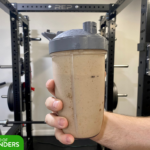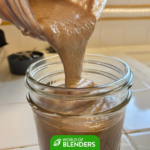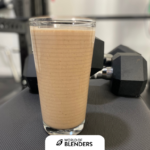This post may contain affiliate links. If you use these links to buy something we may earn a small commission. Thanks.
Today I’m breaking down our list of the 8 best milks for protein shakes!
I’ve been a powerlifter for years and my baseline is 250-300g of protein a day. Protein shakes are the only way I can hit that without spending a fortune on meat.
The key to making the perfect shake is to use the best milk to mix with protein powder. If you don’t, you’ll end up with shakes that are too gritty, clumpy or watery.
I’ll include dairy & non dairy options and dive into the health benefits of each one so you can pick the best one for you.
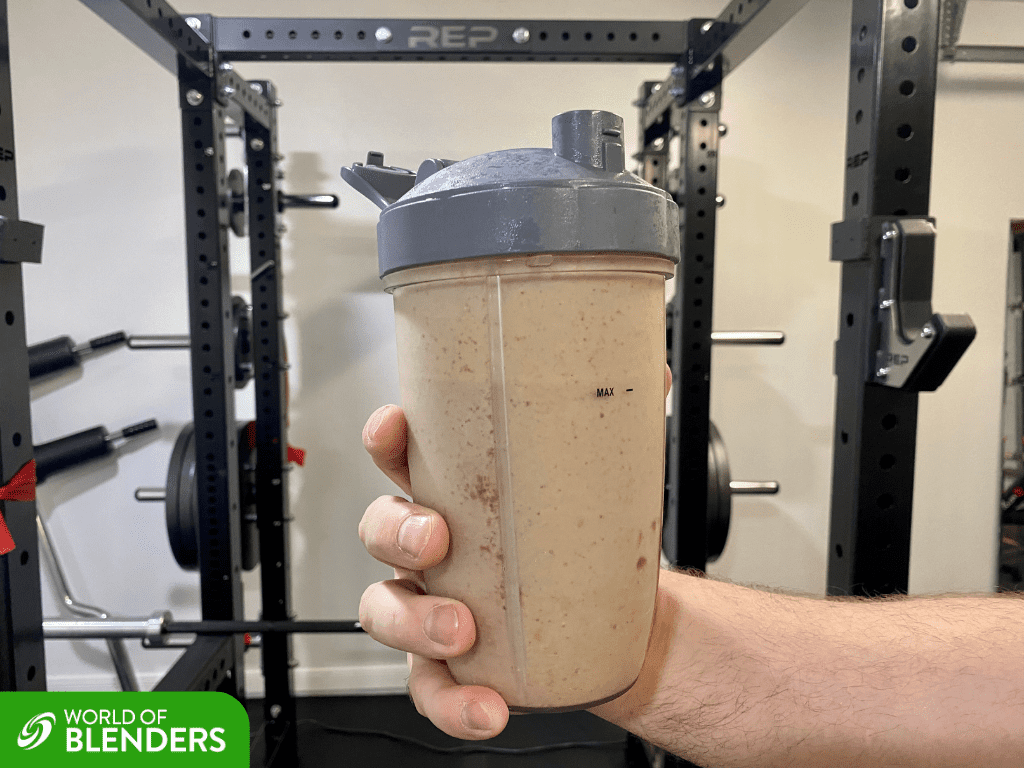
Comparison Chart: Different Kinds of Milk for Protein Shakes
| Type of Milk | Dairy or Dairy Free? | Calories per 1 cup* |
| Regular dairy milk (2%) | Dairy | 120 |
| Whole milk | Dairy | 150 |
| Almond milk | Dairy free | 60 |
| Soy milk | Dairy free | 100 |
| Rice milk | Dairy free | 140 |
| Oat milk | Dairy free | 135 |
| Seed milk | Dairy free | 60 |
| Coconut milk | Dairy free | 80 |
After making and testing tons of different recipes, we’ve compiled all of our favorites in two places:
- 32 Low calorie protein shakes (under 200 calories per serving)
- 40 Protein Shakes for weight gain (25g+ protein per serving)
What’s the Best Milk for Protein Shakes? 8 Options
If you’re trying to decide on the best milk to mix with protein powder, you’ve got tons of options! You can stick with regular dairy (skim, 1%, 2%, whole milk) or go with one of the best milk alternative for protein shakes (almond, soy, coconut, oat, etc).
You really can’t go wrong with whatever you have on hand. But there are pros/cons for each kind of milk. It’ll depend on your unique taste, goals, and dietary preferences
1. Dairy Milk (2%) – Best Milk for Whey Protein
The most popular milk for protein shakes is 2% regular milk. It’s cheap, decently healthy, and you can buy it almost anywhere. It’s about 120 calories per serving and packed with calcium, protein, Vitamin B, and more.
In my opinion, 2% is the best milk for protein shakes because of the taste, consistency, and ease of using.
2% milk is thinner than whole milk which makes it the best milk for whey protein. Protein will mix in well so you won’t have to worry about it being clumpy.
If you’re mixing protein powder without a shaker, I recommend using 2% milk.
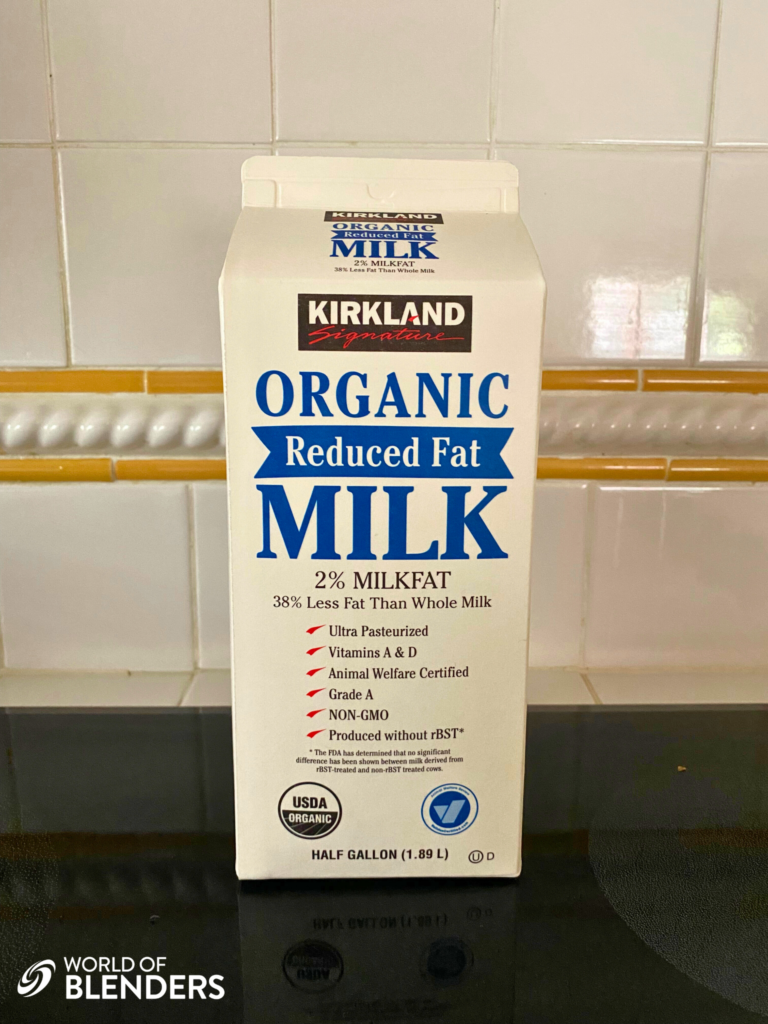
2. Whole Milk – Best Milk for Weight Gain Protein shakes
Whole milk is hands down the best milk for weight gain protein shakes. Like regular 2% milk, it mixes in exceptionally well with protein powder. You won’t have to worry about it getting clumpy or leaving protein powder at the bottom of your cup.
It’s also a great way to make protein shakes thicker. It’s got around 150 calories and 8g of protein per serving. The extra fat content helps make protein shakes taste better and richer.
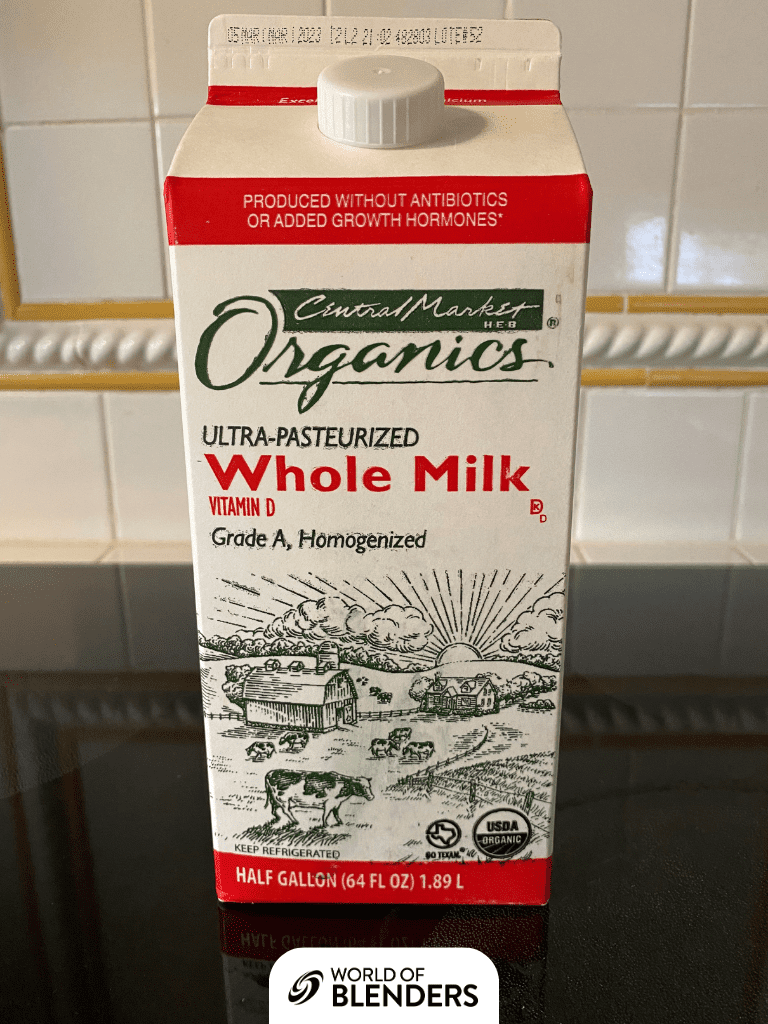
3. Almond Milk – Best Non Dairy Milk for Protein Shakes
Almond milk is the best milk alternative for protein shakes. It’s probably the most popular milk alternative in general. It’s usually cheaper than some of the more unique milks (oat, hemp, pea milk, etc).
Almond milk is great for three reasons
- Calories – Almond milk is the healthiest milk for protein shakes because it has the least amount of calories per serving.
- Taste – The nutty flavor is great if you’re making protein shakes as a meal replacement.
- Thicker – If you like thicker shakes, almond milk is perfect!
The only downside of almond milk is that it’s so thick it can make mixability an issue. If you’re making shakes in a blender then this isn’t an issue. It’s only a problem if you’re mixing by hand.
I’d recommend going with unsweetened unless you want a bunch of extra calories.
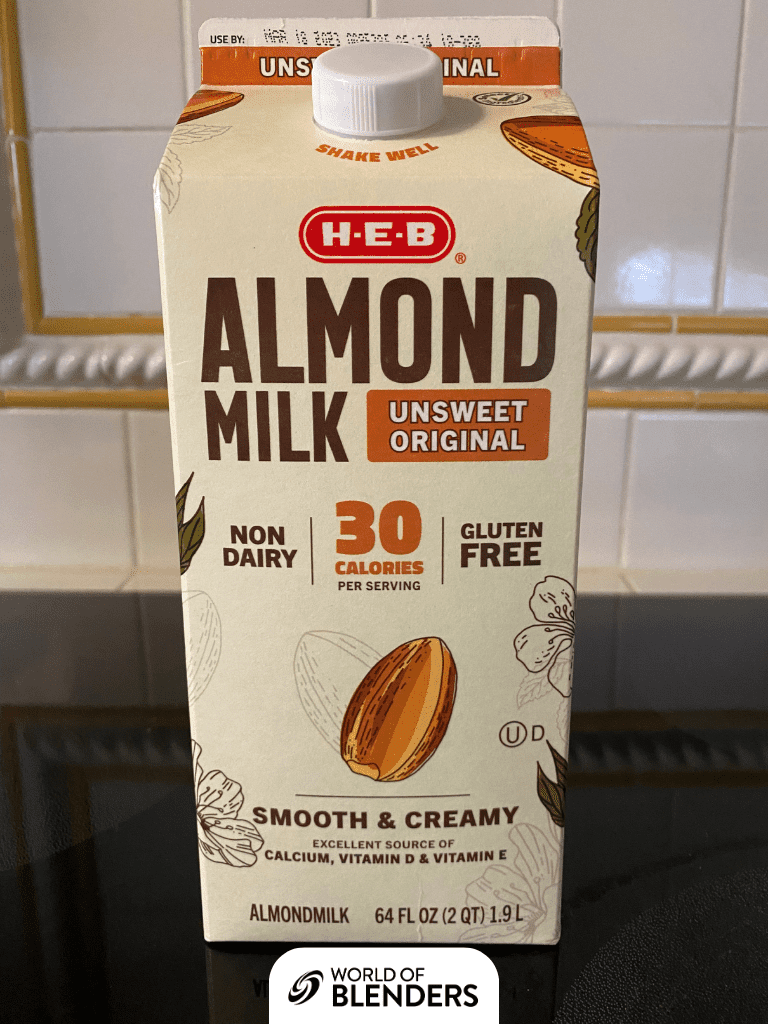
4. Soy Milk
Soy milk was one of the first non-dairy milk alternatives back in the day. It’s less popular now with the rise of almond and oat milk. Soy milk is made from the beans of a soybean plant. The soybeans are soaked in water and then the mixture is ground, heated, and filtered.
Fun fact! Soy milk is the highest protein milk alternative. If you want a non-dairy option with protein, soy milk is the winner with 8g per serving.
Soy milk is fortified with extra vitamins and minerals that are naturally found in dairy milk. It can come sweetened or unsweetened.
Soy milk has a unique flavor. Most people either like it or don’t. It’s hard to describe! I personally don’t love it on it’s own with protein powder but if you’re adding other ingredients to mix with protein powder then it’s a great choice.
5. Oat Milk
Oat milk has become one of the most popular milk alternatives over the last few years! It’s especially popular for coffee and lattes. I love oat milk and actually prefer the taste and consistency over almond milk or other non-dairy options. It’s also higher in protein (2.5g vs 1g).
Oat milk is made by blending whole oat grains with water and straining it out. You end up with a silky and creamy flavor. Some oat milk is flavored, sweetened, and fortified.
The downside is that oat milk is a bit higher in calories, but there are some brands that do a good job keeping it lower. Get unsweetened and you should be good to go.
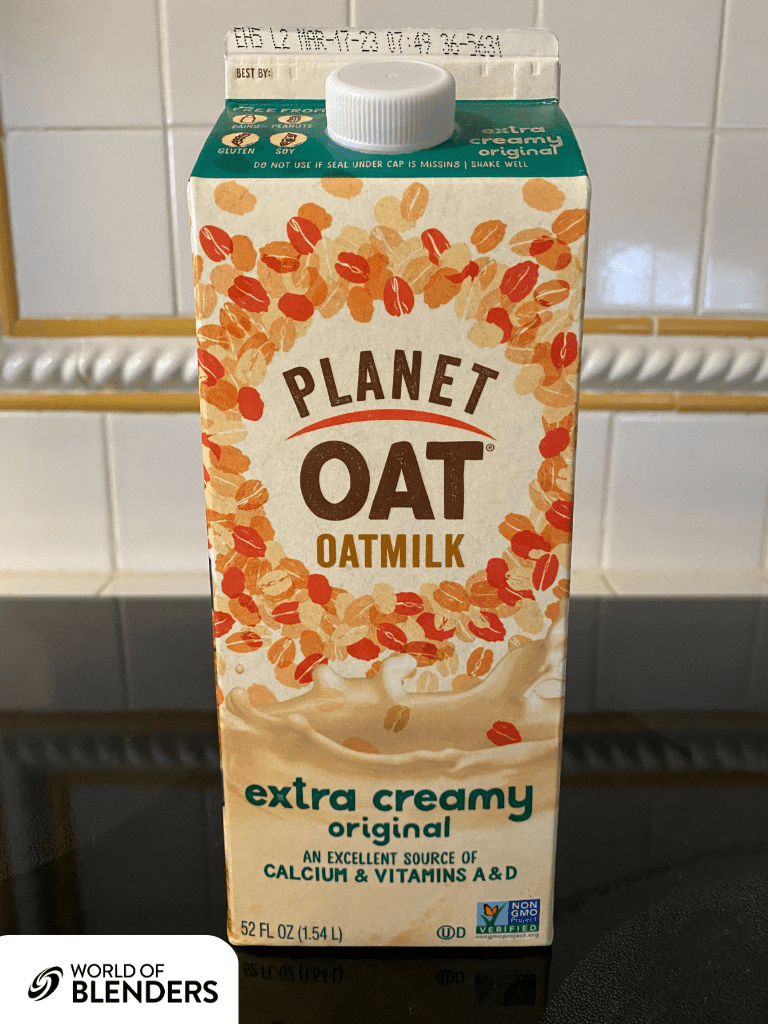
6. Coconut Milk
Coconut milk is made by grinding coconut flesh down into a pulp and extracting the liquid. It’s different from coconut water which is the actual liquid that’s in a coconut. It’s also different from canned coconut milk
Coconut milk is usually slightly higher in fat content and is higher in some micronutrients than other milk options. If you like coconut flavor, then this might be the best milk for protein shakes for you!
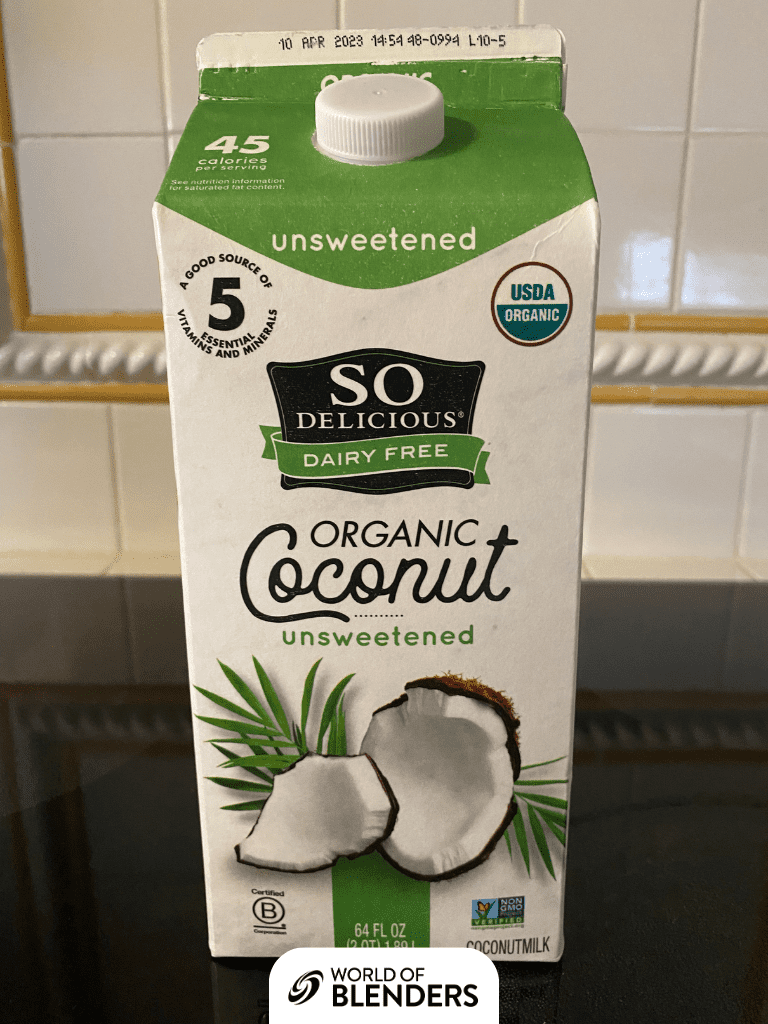
7. Rice Milk
Rice milk is made simply by combining ground rice and water and then filtering it. Commercial rice milk is often fortified with extra vitamins and sometimes sweetened and/or flavored.
Rice milk is higher in carbs and lower in protein and calcium than dairy milk. It’s also going to be a bit more watery/liquidy. This makes it great for mixing in protein powder, but less ideal if you want a thick protein shake.
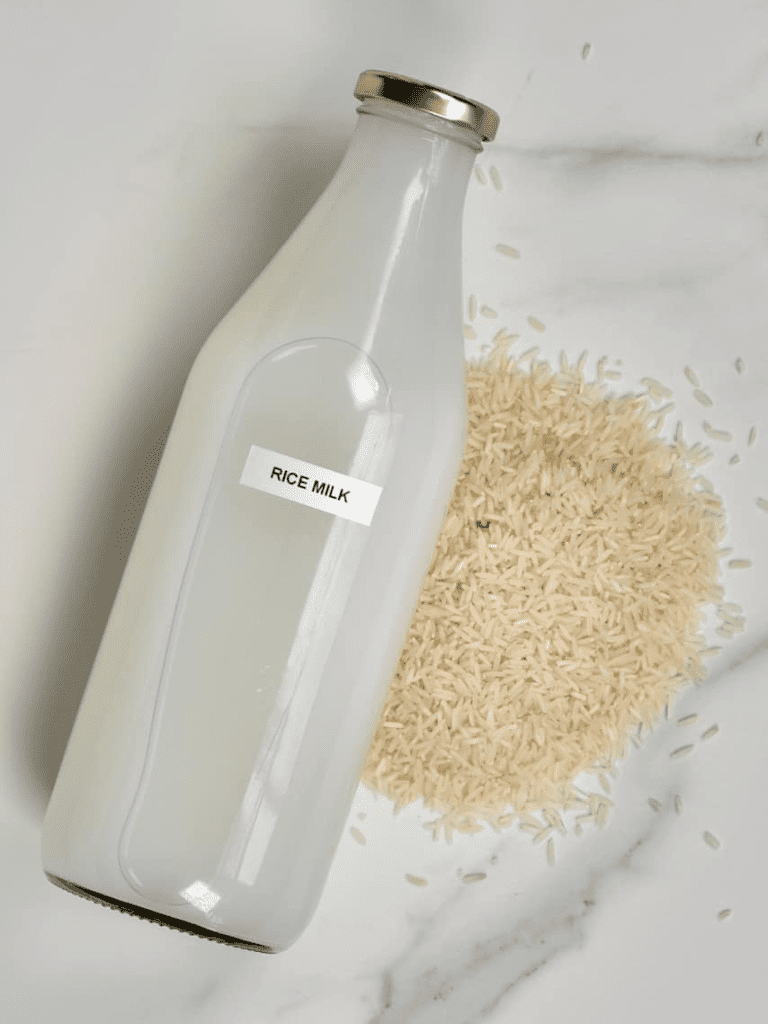
8. Seed Milk
Seed milk is a bit all-encompassing but includes options like hemp milk, flax milk, and chia milk. These are made by blending seeds with water and finely straining out all the solids.
These are usually higher in micronutrients and can sometimes have higher fiber content. Less popular for protein shakes, but worth trying!
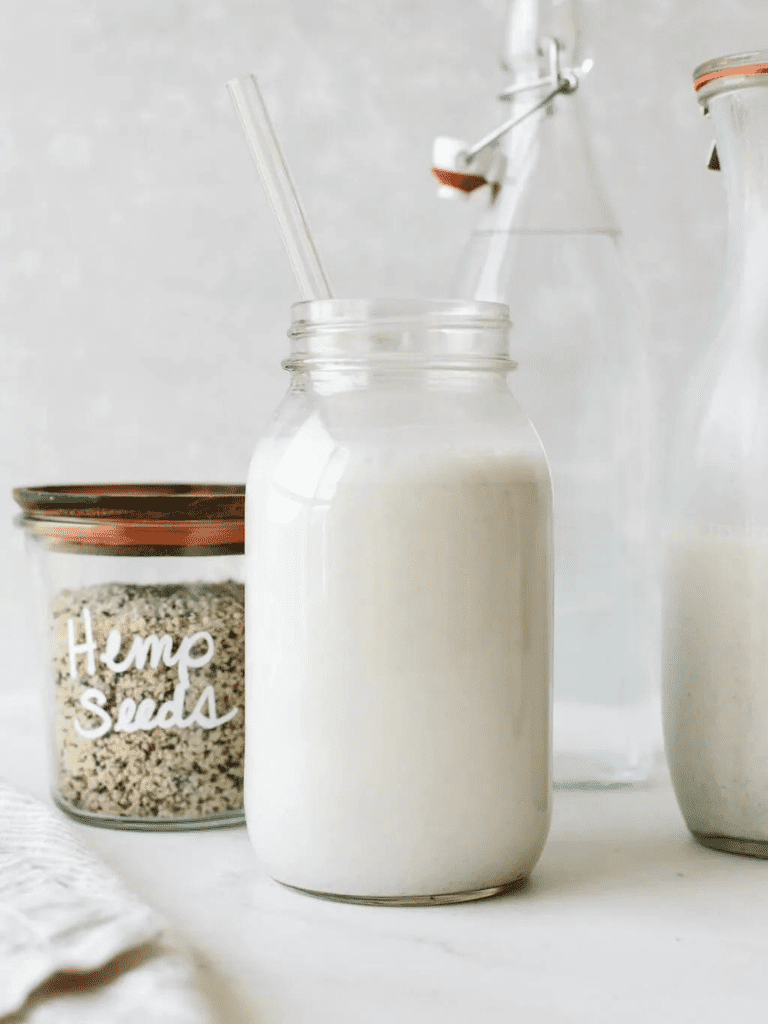
Choosing The Best Milk for Protein Shakes
It can be tough to pick the best milk for protein shakes when there are so many great options! The key is to decide what matters most to you.
Calories
Calorie content has gotta be the one of the more important criteria for deciding what milk you want to use in your protein shake.
There’s a wide range of calories in protein shakes and the liquid choice makes a big difference.
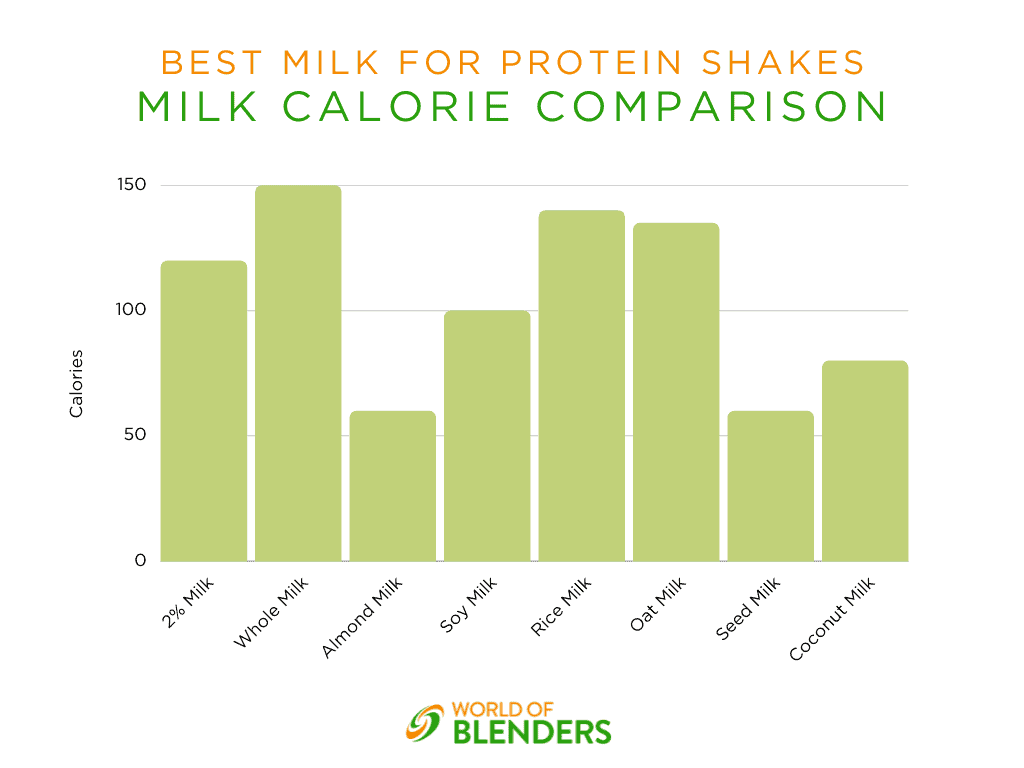
The lowest calorie milk for protein shakes are either skim milk, cashew milk, or almond milk.
If you’re trying to bulk up, whole milk is the best option. It’s 150 cals per serving and the best milk for protein shakes for weight gain.
Protein
If you’re making protein shakes, then a bit of extra protein can be a win! This is helpful if you’re trying to get more protein for workout recovery or to eat a leaner diet.

- 2% milk = 8g
- Whole milk = 8g
- Almond milk = 1g
- Oat milk = 2.5g
- Pea milk = 8g
- Soy milk = 7g
- Rice milk = 1g
Allergies and Lactose Intolerance
If you’re lactose intolerant or fully allergic to dairy then you’ll want to go with a non-dairy option.
In my opinion, the best non dairy milk for protein shakes is almond milk! It’s low in calories, thicker, and has a slightly nutty flavor.
Taste
You might think taste is a big factor, but it honestly doesn’t need to be. For the most part, you won’t get much flavor from the milk by the time you mix in protein powder and other ingredients.
Any kind of dairy milk is going to be neutral. Almond and oat will add a hint of nuttiness but nothing overwhelming. Soy and coconut milk have the most distinct flavors.
Drink whatever you like most.
Consistency
Every kind of milk for protein shakes will give you a thicker consistency than water, but some are thicker than others. The consistency of the milk impacts how well protein powder mixes in.
Almond and oat milk are the thickest on this list. Dairy milk is going to be less thick.
If you use a blender to make shakes, it really doesn’t make much of a difference!
What is the Best Milk for Protein Shakes for Weight Gain?
The best milk for protein shakes for weight gain is either whole milk (150 cals), oat milk (130 cals), or rice milk (140 cals). Soy milk is a great option and is the milk alternative with the highest protein content.
What is the Best Milk for Protein Shakes for Weight Loss?
The best milk for weight loss protein shakes is either almond milk or seed milks like hemp/pea milk. These are the lowest in calories.
Answering Specific Questions About Milk for Protein Shakes
Milk and almond milk are both great for protein shakes! Almond milk has less calories and will give your shake a thicker consistency but it’s harder to mix with protein powder. Regular milk will mix better and is usually cheaper.
Almond milk is great for protein shakes! It’s the lowest calorie milk for protein shakes and will add a a creamy consistency and a nutty flavor.
Oat milk tastes great in protein shakes! I usually avoid it because it’s high in calories. It’s one of the best milks for making weight gain protein shakes.
The highest protein milk alternative is soy milk with 7-8g per 1 cup serving! This is way more than almond milk (1g) and oat milk (4g). These numbers will vary depending on what brands you’re comparing.
What if You Don’t Want to Use Milk in Your Protein Shake?
If you don’t want to use milk for protein shakes that’s okay! You can try other options like water, iced coffee, and yogurt. I do think milk is better than water for protein shakes, but if you’re dairy free or want something calorie free, water can work!
As long as the water-to-ingredients ratio is good, then your protein shake can still be great.
Some people will also buy fruity-flavored protein powder which can go well with natural fruit juice or put into smoothies.
